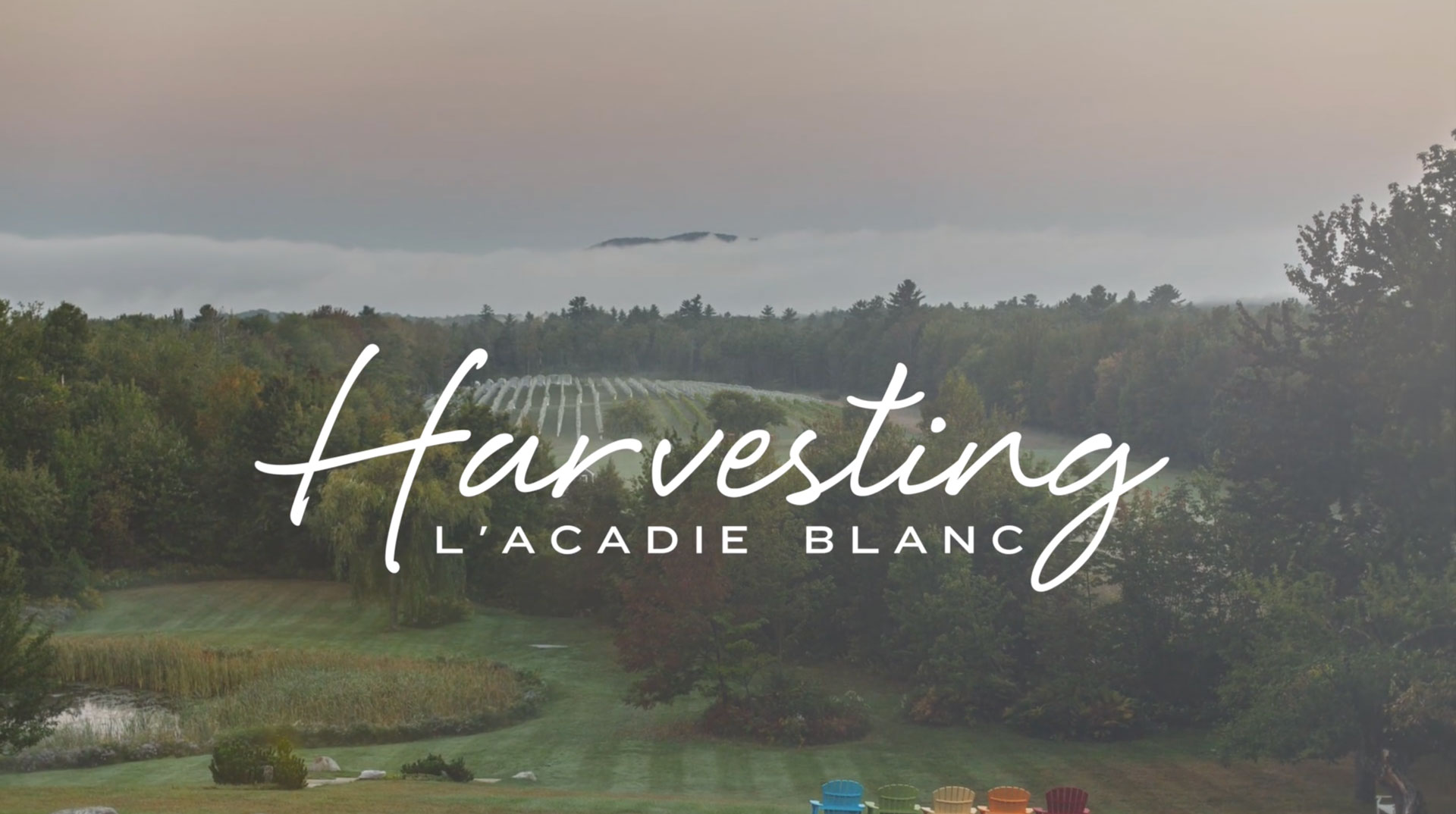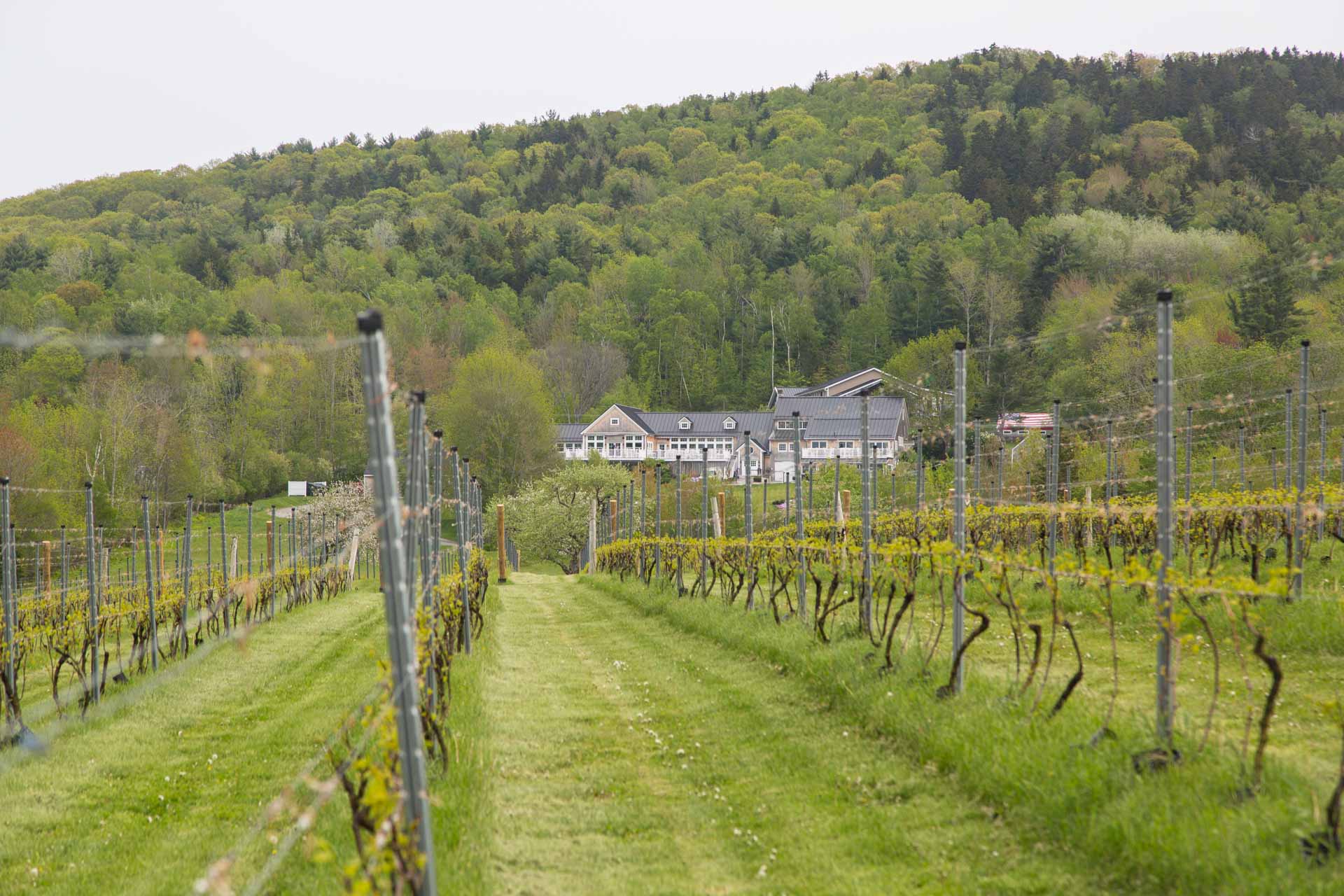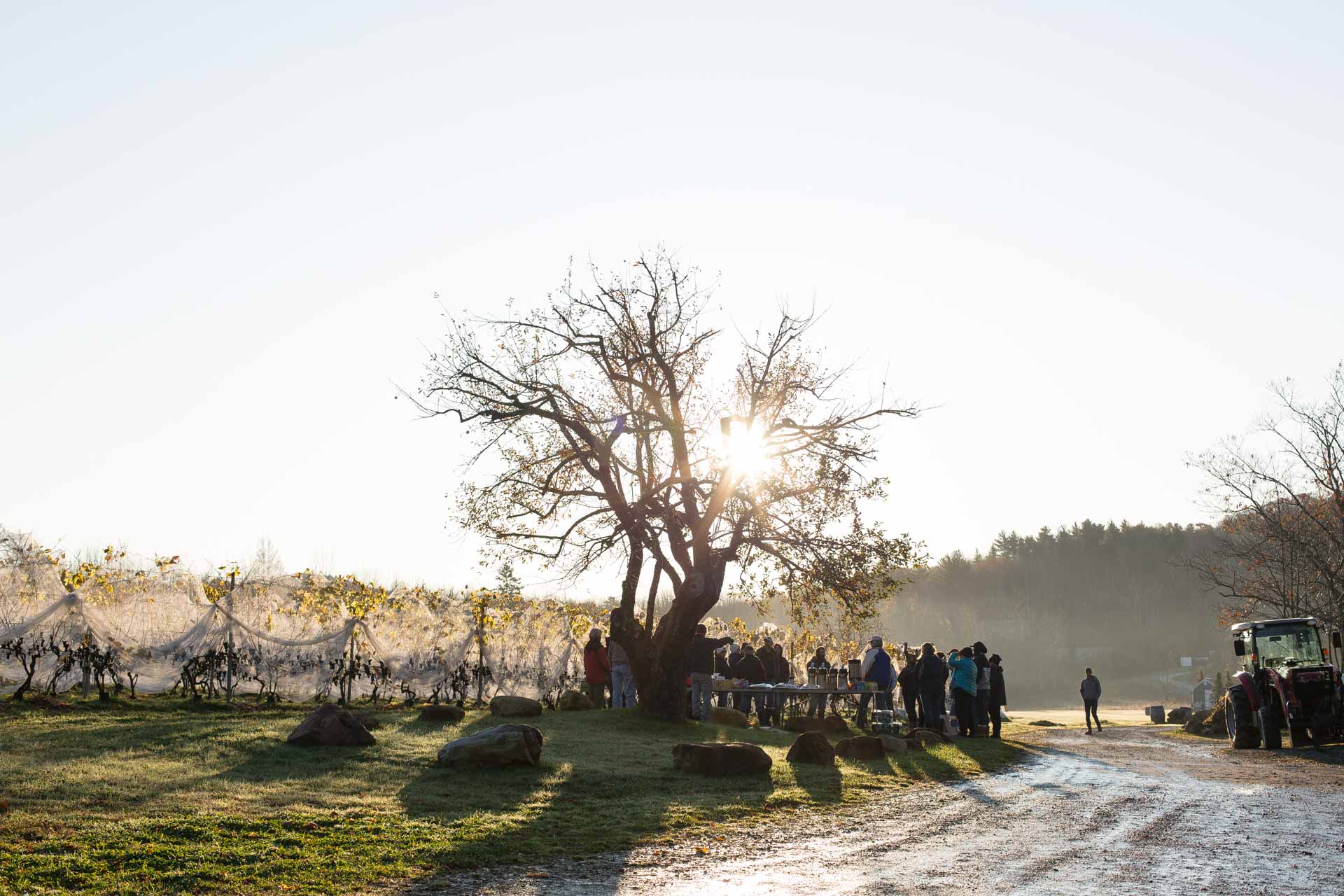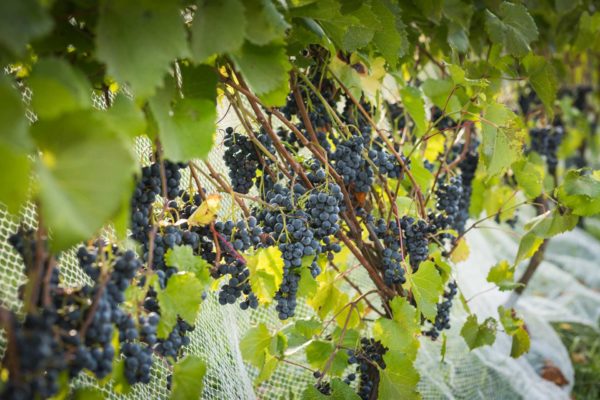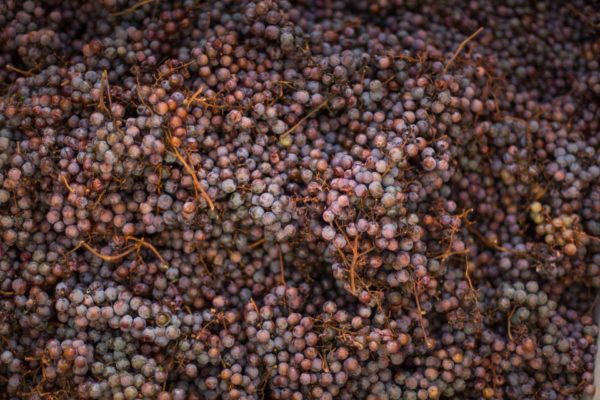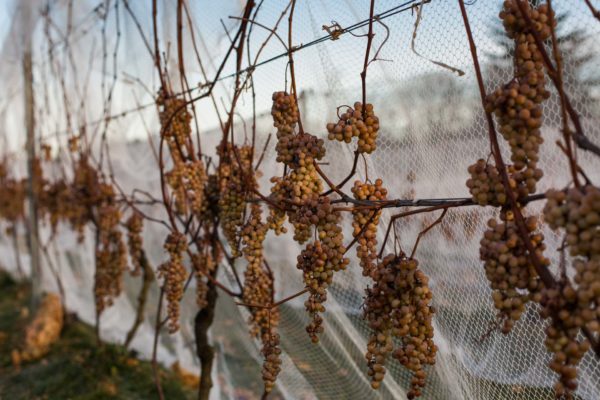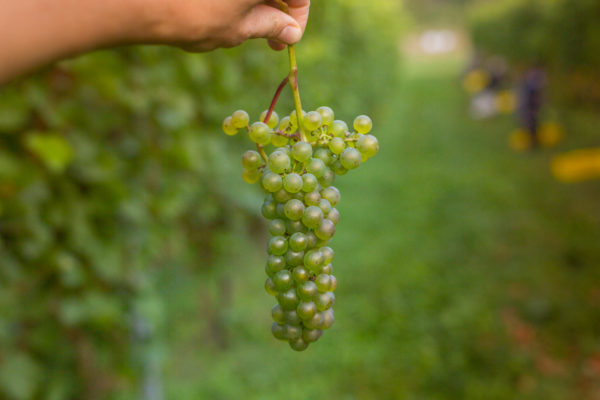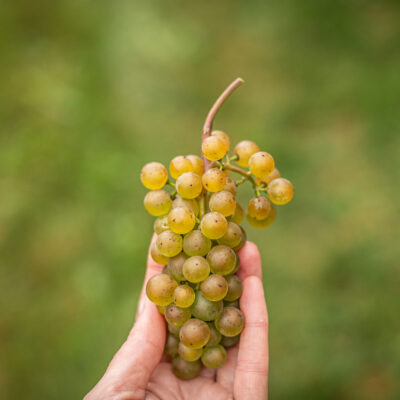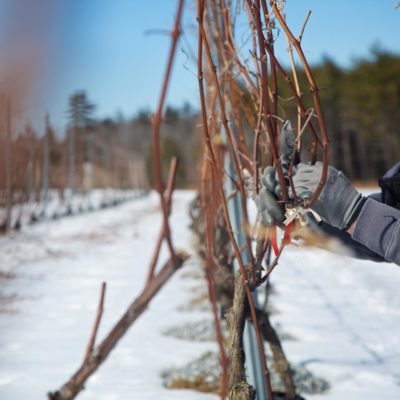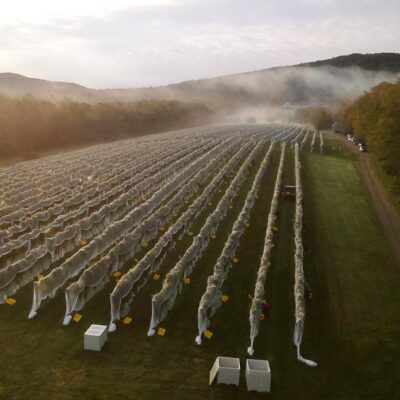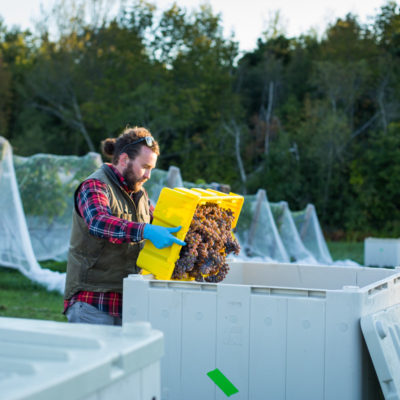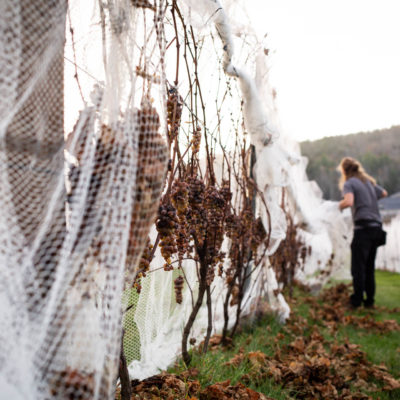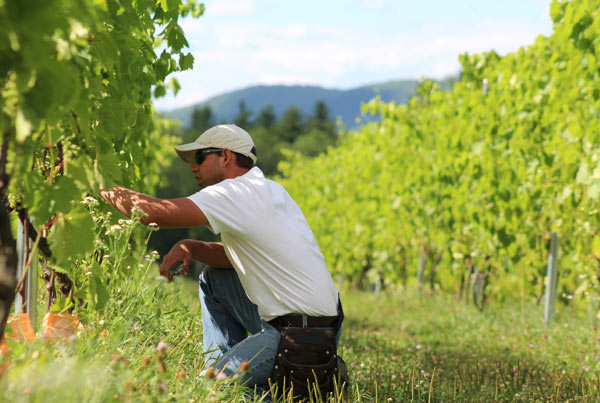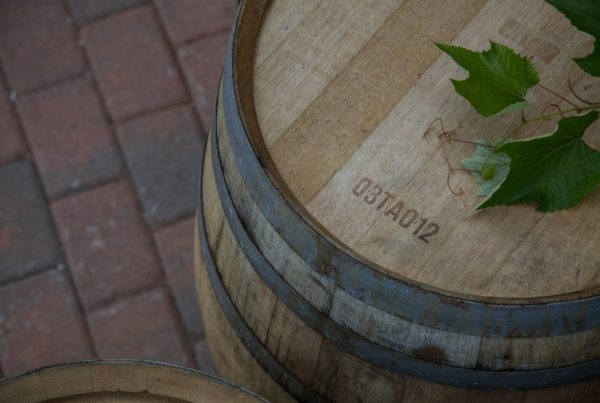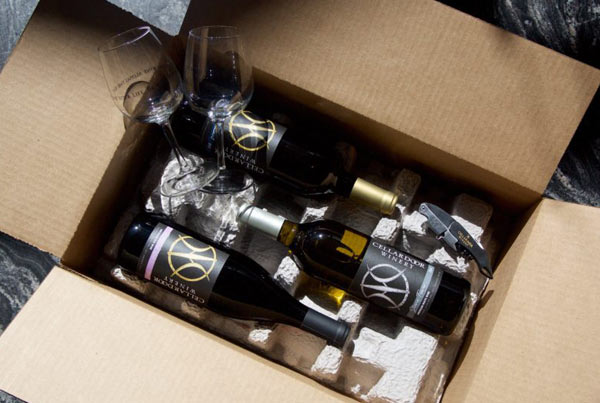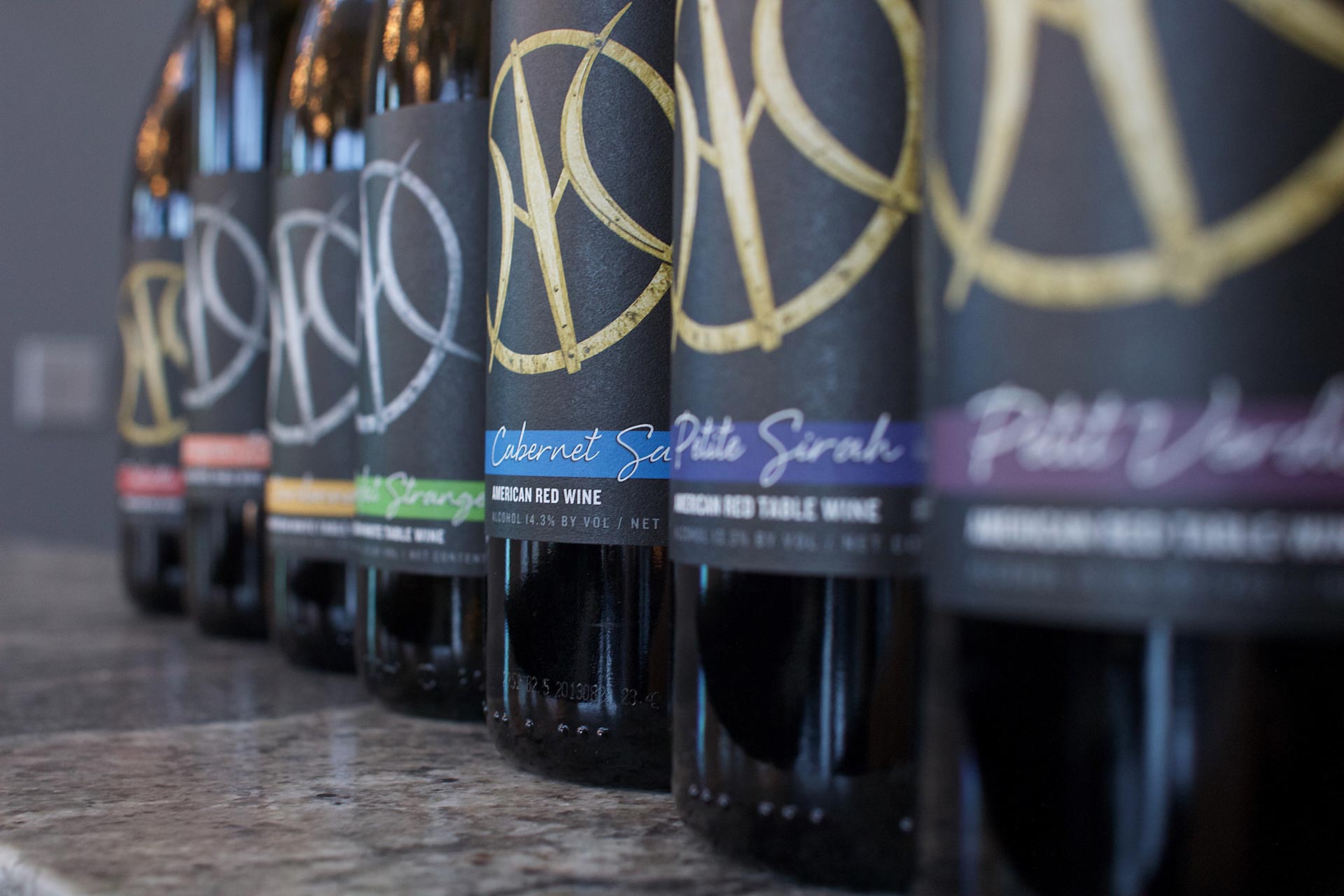Maine’s unique terroir
Grapes can, and are, grown all across the world in latitudes much further north and south than Lincolnville, Maine. But can they be cultivated well? Can you produce quality fruit consistently with the right balance for making great wine? Even with Maine’s unique terroir and ever-changing weather we believe the answer to those questions is yes.
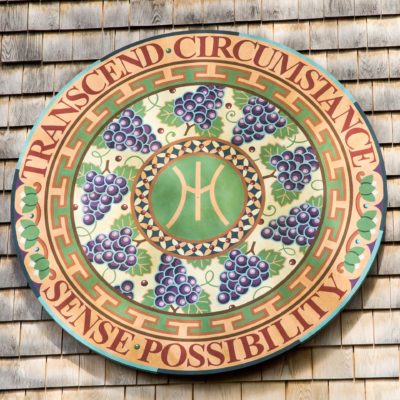
Cellardoor Winery, nestled in the valley between Cameron and Levenseller Mountains in Lincolnville, Maine, is about four miles inland from Penobscot Bay. Our 5,000 vines of North American cold-hardy hybrids, planted on 10-12″ of good fertile topsoil which turns to heavy clay, are surrounded by a forest with an active wildlife population. Netting is essential to protect our ripening fruit from being consumed by everything from bears, moose, deer, to gophers and songbirds. Animals and humans alike make the most of the short growing season in Maine. The challenge of growing grapes in Maine is also what makes our vineyard unique and we believe the spirit of meeting those challenges head-on and overcoming them is present in every glass poured.
At Cellardoor, a sign hangs above our door that says, “Transcend Circumstances. Sense possibility.” That’s what we do here. We find the potential in everything and everyone, and we shape it to become a better winery, vineyard, company, and team. Not only do we want to set the bar for what quality and craftsmanship look like from a premier winery and vineyard. We also want every bottle to represent our absolute personal best, and we strive to go even further every year. Our goal is always to exceed expectations.

